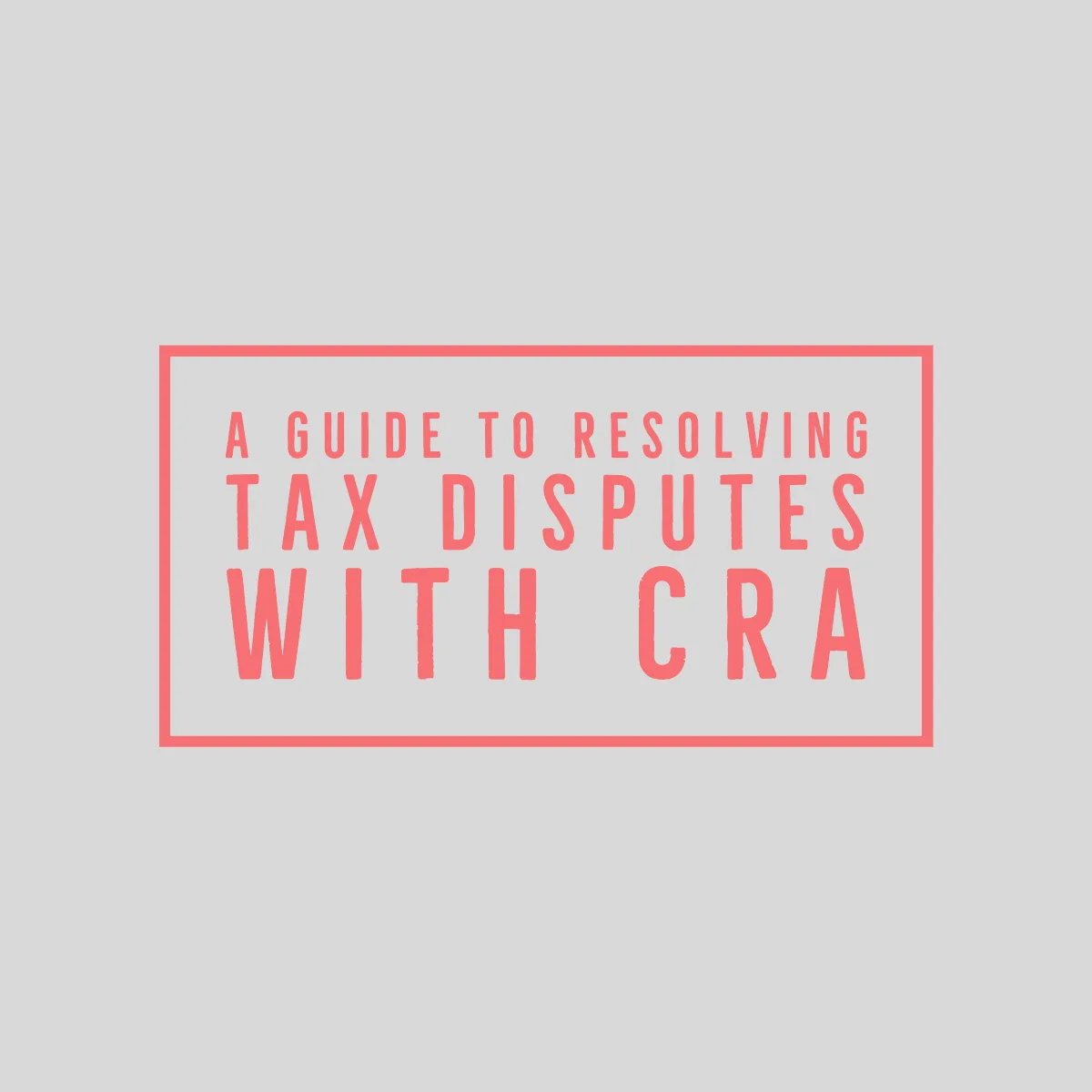Introduction:
Navigating the world of tax assessments and disputes can be complex, but the Canada Revenue Agency (CRA) is here to help. Before taking the step of filing an objection or appealing a CRA decision, consider these essential steps to ensure you have all the information you need for a smoother resolution process. 1. Communication is Key: Talk to Us Misunderstandings often arise from miscommunication or a lack of information. The CRA encourages taxpayers to reach out before initiating a formal dispute process. Here’s what you can do:- Check Your Notice: If you received a notice of assessment that you disagree with, the first step is to check the contact information provided. Find the number listed on your notice, which is specific to your case, and give us a call.
- Online Contact: Alternatively, you can visit canada.ca/cra-contact to find the appropriate contact information based on your situation. We are here to provide you with an explanation of your notice and guide you through the process.
- T1 Personal Income Tax Return: Visit canada.ca/change-your-tax-return for information on correcting your personal income tax return.
- T2 Corporate Tax Returns: If you’re dealing with corporate taxes, go to canada.ca/t2-return, select “After you file your corporation income tax return,” and explore the section on “Reassessments – Adjusting your T2 return.”
- T3 Trust Return: To make changes to a trust return, you must complete Form T3-ADJ, T3 Adjustment Request, and send it to us.
In your dealings with the Canada Revenue Agency (CRA), it’s essential to know your rights, including the right to object to an assessment or determination if you disagree with it. While most items in an assessment or determination can be objected to, there are some limitations and specific situations where objections may not be accepted. Let’s delve into these aspects of the CRA dispute process:
Limitations on Your Right to Object
In most cases, you have the right to object to any item in an assessment or determination. However, there are a few situations where you can only object to the specific matter that led to the assessment or determination. The CRA will inform you if any limitations apply to your case.
Situations Where You Cannot File an Objection
Certain items cannot be objected to, and objections that are not part of the assessment of tax, penalties, and interest cannot be accepted. Here’s a list of items that fall under these categories:
- Registered Retirement Savings Plan (RRSP) and/or Tax-Free Savings Account (TFSA) Room Statement
- Carryforward Balances
- T2 Accounts – Statute Barred Refund
- Other Accounts – Statute Barred Refund
- Home Buyers Plan (HBP) Balances
- Refund Interest
- Tax Deducted at Source
- Canada Pension Plan/Employment Insurance (CPP/EI) Refunds
- Old Age Security (OAS) Recovery Tax
- Refundable Quebec Abatement
- Set-offs (Internal or External)
- Reassessments Processed Under the Taxpayer Relief Provisions
- Statements of Account
- Nil Assessment
- Accounting Issues (excluding objections to assessed penalties and interest)
- Pension Adjustments (PA)
- The CRA uses Notice of Reassessment (NORA) forms to communicate PA amounts, and these cannot be objected to as they are not assessed or determined under the Income Tax Act (ITA).
- Late-Filed Objections (filed beyond the time limit)
- Early-Filed Objections (filed before receiving the Notice of Assessment or Determination)
- Visit canada.ca/cra-objections-appeals.
- Select “File an Objection.”
- Choose between “File an Income Tax Objection” or “File a GST/HST Objection.”
- Access the decision tree that applies to your situation.



Leave a Reply